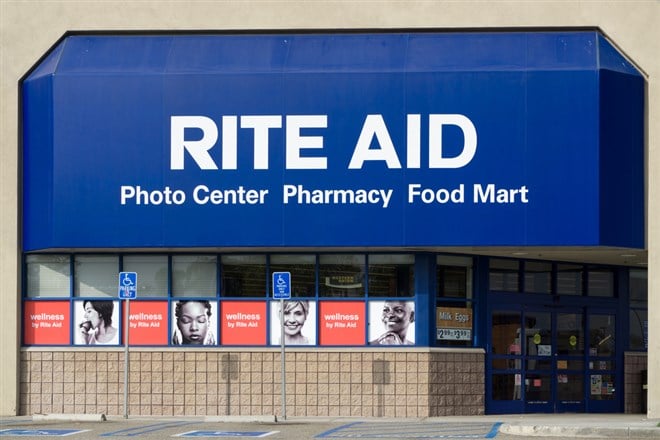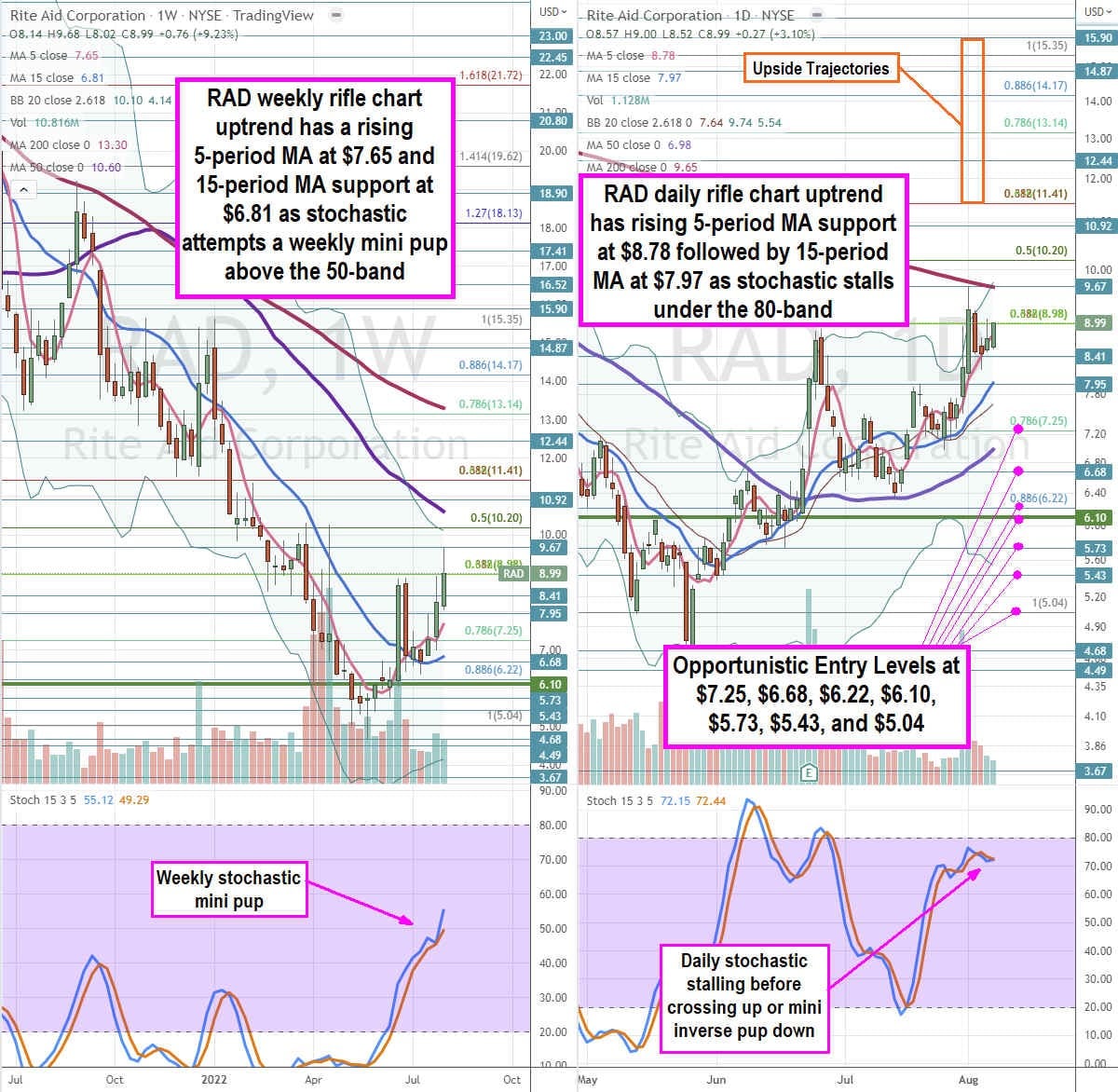
- While Rite-Aid is a drugstore, its main growth driver is the pharmacy benefits management (PBM) business
- Rite Aid stock plunged below pandemic lows to $4.68 as it reported a tear-jerking (-$1.63) loss per share
- Bullish investors believe the COVID business bought the Company enough time to build up its pharmacy business
Elixir Growth Engine
While Rite-Aid is a drugstore, its main growth driver is the pharmacy benefits management (PBM) business. The Company has transformed it into fully owned subsidiary called Elixir which offers pharmacy benefits services including Medicare-approved prescription drug plans, prescription discounts, mail order, and specialty pharmacy solutions. The Company has been going through a transformative reorganization as it attempts to bolster its pharmacy business. This resulted in doubling its estimated losses in fiscal Q4 2021, prompting Deutsche Bank to place a Sell rating with a $1 price target on the shares. As Elixir continues to grow intrinsic value, it becomes more attractive as an acquisition target. There is speculation that activists investors are pushing for a spin-off or sale of Elixir to bolster Rite Aid shares.
Blocked Walgreens Merger in 2015
An acquisition attempt by Walgreens (NYSE: WBA) to buy Rite-Aid for $9 per share was blocked by regulators in 2015. After years of speculation, Walgreens eventually ended up purchasing 1,932 Rite-Aid stores and three distribution centers for $4.4 billion.
Spear Point Capital Management Takeover Bid
In April 2022, Spear Point Capital Management had presented a non-binding proposal to acquire Rite Aid for $815 million or $14.60 per share. On April 21, 2022, the Board of Directors confirmed it had rejected the non-binding off-market proposal as they doubted the credibility of the offer. They concluded, “In making its determination, the Board considered, among other defects, that the Spear Point proposal provided no evidence of financing, required multiple months of exclusivity and then called for Rite Aid to spend months soliciting competing offers. In addition, Spear Point’s proposal was conditioned on none of the Company’s debt becoming due and payable upon a change in control, which contradicts the terms of nearly all of Rite Aid’s debt instruments. Furthermore, Spear Point has no track record of acquiring public companies the size and complexity of Rite Aid.”
Stinky Earnings Smelling Slightly Better
On June 23, 2022, Rite Aid released its fiscal first-quarter 2023 results for the quarter ending May 2022. The Company reported an earnings-per-share (EPS) loss of (-$0.60) excluding non-recurring items versus consensus analyst estimates for a loss of (-$0.70), a $0.10 beat. Revenues fell (-2.4%) year-over-year (YoY) to $6.01 billion, beating analyst estimates for $5.73 billion.
Raised Full-Year Fiscal 2023 Guidance
While the Company still expects losses for full-year 2023, they are less than before. Rite Aid issued fiscal full-year 2023 EPS between (-$1.19) to (-$0.66) versus (-$1.41) consensus analyst estimates. The Company expects revenues of $23.6 billion to $24 billion versus $22.91 billion analyst estimates. Adjusted EBITDA is expected between $460 million to $500 million. Retail Pharmacy Segment adjusted EBITDA is expected between $320 million and $350 million and Pharmacy Services Segment adjusted EBITDA is expected between $140 million to $150 million.
Turnaround in the Cards
Rite Aid CEO, Heyward Donigan commented, “We continue to make strides on our journey to transform Rite Aid and define the modern pharmacy. In the first quarter we increased our non-COVID prescriptions, reduced SG&A, built momentum at Elixir and delivered solid results across the business. The entire Rite Aid team looks forward to advancing our pharmacists’ role in improving health outcomes.”
RAD Opportunistic Entry Levels
Using the rifle charts on the weekly and daily time frames enables a precise view of the playing field for RAD stock. The weekly rifle chart sell-off eventually bottomed at the $5.04 Fibonacci (fib) level. Shares managed to rally 40% from the lows. The weekly downtrend reversed in to an uptrend with a rising 5-period moving average (MA) support at $7.65 followed by the 15-period MA support at $6.81. The weekly stochastic spiked through the 20-band and is attempting a mini pup through the 50-band. The weekly upper Bollinger Bands sit near the $10.20 fib and the weekly 50-period MA resistance is falling at $10.60. The weekly 200-period MA resistance sits just above the $10.20 fib level. The weekly market structure low (MSL) triggered on a breakout through $6.10. The daily rifle chart formed a pup breakout with a rising 5-period MA at $8.78 followed by the 15-period MA at $7.97 as it stretches for the daily upper BBs overlapping the daily 200-period MA at $9.65. Shares spiked towards the $8.98 fib on the earnings reaction but fell back down towards the $6.22 fib before spiking again on potential activist speculation. RAD has a 23% short interest, which could fuel a potentialNYSE: AMC"> short squeeze. Investors should watch for the daily stochastic to come down before considering opportunistic entry levels at the $7.25 fib, $6.68, $6.22 fib, $6.10 weekly MSL trigger, $5.73, $5.43, and the $5.04 fib level. Upside trajectories range from the $11.41 fib level up towards the $15.90 price level.




